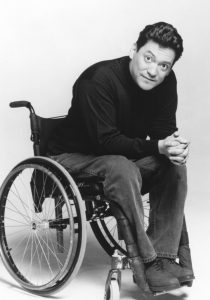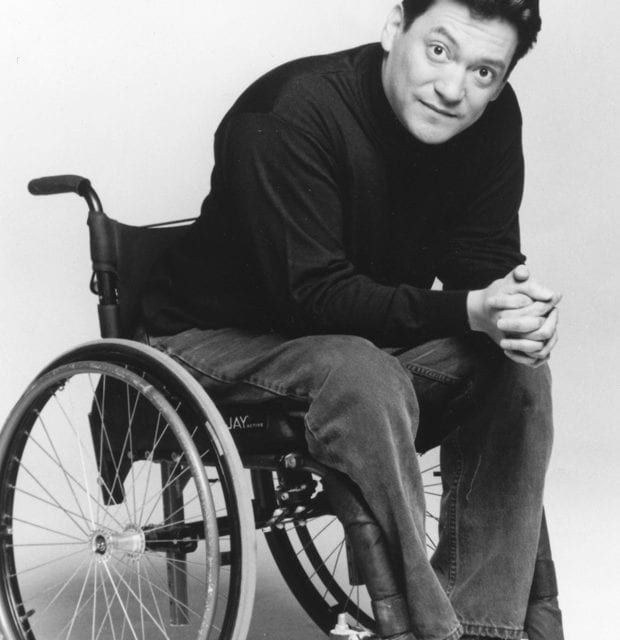 There’s a secret in the restaurant business that a lot of chefs can flambe cherries jubilee or bananas foster tableside, and many can toss around their knives like a magician in a side show, but when you wanna hire someone to run your kitchen, you ask him to cook an egg. Flamboyance is great and showmanship is wonderful, but mastering simplicity is the true sign of talent. Can’t cook a measly egg? You’re all sizzle, no steak.
There’s a secret in the restaurant business that a lot of chefs can flambe cherries jubilee or bananas foster tableside, and many can toss around their knives like a magician in a side show, but when you wanna hire someone to run your kitchen, you ask him to cook an egg. Flamboyance is great and showmanship is wonderful, but mastering simplicity is the true sign of talent. Can’t cook a measly egg? You’re all sizzle, no steak.
The same holds for a number of disciplines, not the least among them the craft of theater. I’ve seen directors crash chandeliers and fly helicopters and I’ve thought “Wow.” But until you’ve seen a director who can break your heart and make you smile simultaneously while showing you an awkward Irish couple navigate their feelings for each other, or gasp at the humor and humanity of an octogenarian and his prickly relationship with a young gay man, you don’t know what great directing means.
Rene Moreno directed Outside Mullingar and Visiting Mr. Green and dozens of other plays during his illustrious career. And damn, that man could cook an egg.
I first encountered Moreno as an actor. It was nearly 25 years ago I saw him in a minor role in Dallas Theater Center’s production of A Christmas Carol, and he stood out — not because he used a wheelchair, but because he grabbed your attention. He made an impact as an actor — in the Dallas-filmed movie Late Bloomers, on Broadway in the original run of Amadeus (before the accident that paralyzed his legs), even in a late-career return to the stage as the title villain in Richard III — but his true calling was really behind the scenes. It probably wasn’t long after that Christmas Carol that he ventured into directing full-time, starting in 1996 with Miss Julie. He took to it like a duck to water. What was that mystical conjuring that allowed him to extract such painfully beautiful performances out of any cast of actors he blessed with his touch? He could turn a seemingly mild comedy-drama like Good People into something profound; in my review, I noted it was “directed, as always, with deft understanding for the subtleties of humanity by Rene Moreno.” That was it, all the time. He knew the human psyche so intimately, he was able to coax out breathtaking work — not just from actors, but designers, too. His prowess at storytelling was legendary. He could tackle massive American dramas like Who’s Afraid of Virginia Woolf and August: Osage County with brilliance, spin back to adapting a Restoration comedy like The Lucky Chance to swingin’ Mod London with light-footed farce, turn to a chamber comedy-drama like The Trip to Bountiful and manage to helm a Strindberg to rarefied heights. He wove the most exquisite tapestry of life, one where you never saw the seams.
So when word broke late Tuesday that Moreno, who had undergone recent surgeries, has succumbed to a heart attack in the hospital, it didn’t just feel like the Dallas theater community had lost as artist; it felt like the soul of all North Texas had been somehow vanquished.
In a region flush with amazing theater professionals, from actors to directors to producers, musicians and designers, I don’t think anyone would disagree that Rene Moreno was nonpareil — not merely the best of the best, but virtually peerless. He had the incredible ability to elevate everyone in a show he was in charge of. (He won more Dallas-Fort Worth Theater Critics Forum Awards than I can count.)
“WaterTower Theatre Board and Staff offer their deepest condolences to the friends and family of René Moreno,” Gregory Patterson, managing director at WTT, messaged me. “Rene was a longtime colleague of WaterTower’s and he will be greatly missed by all. Our thoughts and prayers are with the DFW theatre community as we mourn the loss of this great artist.”
“It’s an extraordinary loss,” Susan Sargeant, founder of WingSpan Theatre Co., told me. “My heart aches.” (Moreno’s final directorial effort, WingSpan’s staged reading of Rose, will proceed as planned this weekend at the Bath House Cultural Center.)
But it wasn’t just that he was a director, but a consumer of theater. I last saw Moreno — whom I count as a personal friend (our birthdays were just days apart — both Geminis, which Rene found humorous) — watch a show a few weeks ago. We chatted that he was undergoing several surgeries; he seemed upbeat but a bit sanguine as well at the prospect. Still, the heart attack at age 57 that took his life following, reportedly, a recent back surgery, came as a shock. The outpouring of grief on social media was immense, with condolences conveyed to his longtime partner, Charles McMullen.
Perhaps it was his comparative youth, or the suddenness, or the realization of the loss of his good humor, that surprised people most. But speaking personally, it feels deeper than mere loss. Rene Moreno was an authentic genius of his craft whose work transformed all who saw it. The cost feels incalculable.
— Arnold Wayne Jones
This appeared in the March 31, 2017 print edition of Dallas Voice.














